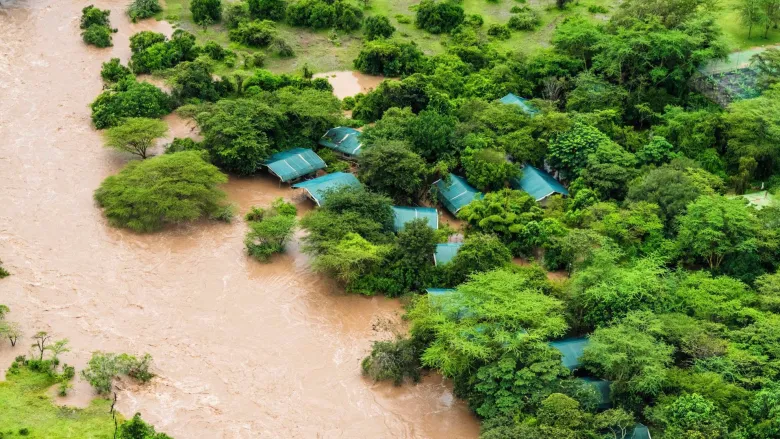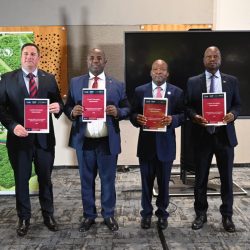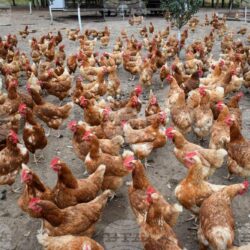By Our Environmental Affairs Desk
Johannesburg, South Africa— The breadbasket of Southern Africa is under siege. A potent cocktail of rising temperatures, dwindling rainfall, and increasingly erratic weather patterns is threatening the very foundations of the region’s economies, the livelihoods of millions, and the ambitious development goals set by continental and regional bodies.
A stark new analysis reveals the deepening crisis facing the agriculture and water sectors, the lifeblood of many emerging economies in the developing world. The research underscores how climate change is no longer a distant threat but a present-day reality that is actively undermining efforts to achieve food security, eradicate poverty, and ensure access to clean water and sanitation—core tenets of the Sustainable Development Goals.
The African Union’s 2014 Malabo Declaration, which positioned agriculture as the engine for inclusive economic growth and a weapon against malnutrition and hunger, now faces a formidable foe. Climate change, with its projected increases in heat, shifts in rainfall, and a surge in extreme events like droughts and floods, is poised to derail these aspirations.
“We are witnessing a significant disruption to the delicate balance between water availability and agricultural productivity,” warns Dr. Charles Nhemachena, a researcher at the International Water Management Institute in Pretoria. “The impacts are already being felt across Southern Africa, particularly by the vast majority of the rural population who depend on rain-fed agriculture for their survival.”
The study highlights the alarming statistic that nearly 95% of agriculture in Southern Africa relies on rainfall. This makes the region exceptionally vulnerable to changes in precipitation patterns. Analysis of rainfall data between 1960 and 2007 paints a concerning picture, revealing a dramatic 25.6% decline in total annual rainfall across the region. By 2007, nearly half of Southern Africa’s landmass was classified as arid, with vast areas receiving less than 350mm of rainfall annually—a threshold for severe water scarcity.
“The variability of rainfall has also intensified in recent years,” notes Dr. Luxon Nhamo of the South African Water Research Commission. “This means more unpredictable seasons, with greater risks of both devastating droughts and destructive floods, making it incredibly challenging for farmers to plan and sustain their production.”
The consequences are far-reaching. With agriculture consuming a staggering 70% of the region’s renewable freshwater resources, dwindling water supplies directly translate to reduced agricultural output. This, in turn, threatens food security at both national and household levels, exacerbates poverty, and undermines overall economic development.
The challenges are compounded by existing socio-economic vulnerabilities. Poverty, widespread food insecurity, limited capacity to adapt, and a lack of financial resources and technology further weaken the resilience of African agricultural systems to the vagaries of a changing climate.
Dr. Greenwell Matchaya from the Consultative Group on International Agricultural Research emphasises the multi-faceted nature of the crisis. “The agriculture sector in Southern Africa faces a triple challenge: adapting to changing climatic conditions, producing enough food for a growing population, and minimising its contribution to greenhouse gas emissions.”
The research underscores the intricate relationship between climate change impacts on the water sector and their cascading effects on agriculture and, ultimately, development goals. In a region where most surface water resources are shared across borders, the pressure on these resources can also fuel regional tensions.
Dr. Charity R. Nhemachena of the University of South Africa points to the urgent need for strategic interventions. “This review provides crucial evidence for policymakers to develop and implement effective climate change adaptation strategies in both the water and agriculture sectors. Building resilience is not just about protecting livelihoods; it’s about safeguarding the future development and stability of the entire region.”
The findings of this comprehensive analysis serve as a wake-up call. Southern Africa stands at a critical juncture. Addressing the intertwined challenges of climate change, water scarcity, and agricultural vulnerability requires urgent and coordinated action to protect the progress made and to secure a sustainable and prosperous future for all its citizens. The path forward demands evidence-based policies that foster climate resilience in the vital water and agriculture sectors, aligning with continental aspirations for inclusive growth and sustainable development.




